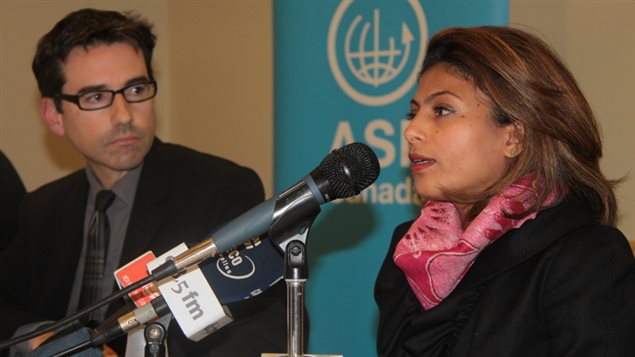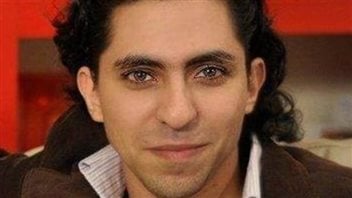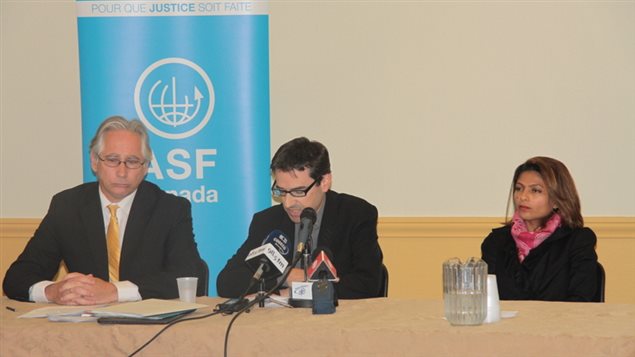
Lawyers Without Borders Canada says Saudi Arabia breached its own laws in the case of Raif Badawi
One of the first priorities of Canada’s incoming foreign affairs minister should be to seek the release of jailed Saudi blogger whose family has found refuge in Canada, says an international human rights group.
Pascal Paradis, the executive director of Lawyers Without Borders Canada (LWBC), said Canada’s newly elected government, which will be sworn in on Wednesday, has an opportunity to take on a new leadership in the case of Raif Badawi. The 31-year-old father of three was sentenced to 10 years in prison, 1,000 lashes and a fine of about $289,000 in May 2014, for posting Facebook comments that “infringe on religious values.”
Badawi underwent the first flogging session of 50 lashes on January 9, 2015, but subsequent flogging sessions of 50 lashes every Friday have been postponed for medical reasons.
Following his trial, Badawi’s wife, Ensaf Haidar, fled to Canada where she and her children were granted political asylum.
Even though, Badawi is not a Canadian citizen, Ottawa has a moral obligation to intervene on his behalf, Paradis said Tuesday. The human rights organization wants to meet with the new minister to discuss Badawi’s case as soon as possible, he said.
Listen“Mr Badawi’s spouse lives here in Sherbrooke,” Paradis said. “She’s one of our own now, their children are here in Sherbrooke, Quebec, so there is a link with Canada.”
Paradis spoke with reporters Tuesday following a press conference in Montreal where the human rights group presented a detailed legal review of Badawi’s case prepared by LWBC in partnership with the Quebec Bar Association and Lavery law firm.
“The legal work carried out by LWBC and its partners reveals that Saudi Arabia violated the rights of Mr. Badawi, as well as national and international obligations in three specific areas: the right to free trial, the right to liberty of expression and opinion, and the absolute ban on torture and cruel, inhuman or degrading treatment,” Paradis said.
He said a team of researchers combed through Saudi Arabian legislation, as well as various relevant international treaties the kingdom has signed and ratified to prepare the 12-page document, which was sent to Saudi authorities in August but with no response.

“Flogging is not just acceptable under any standards, under any circumstances under international law,” Paradis said. “Saudi Arabia has signed on and ratified the convention against torture and the Arab charter.”
Paradis said they have no illusions about the chances of their legal brief swaying Saudi authorities to release Badawi.
“But there is still an opening,” Paradis said. “The King has discretionary power to reopen any case, including the case of Mr Badawi… and there is still a possibility that the King might intervene and do the right thing.”







For reasons beyond our control, and for an undetermined period of time, our comment section is now closed. However, our social networks remain open to your contributions.